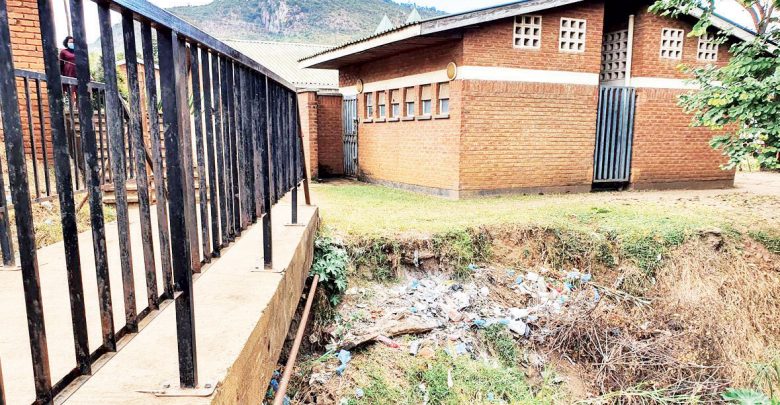Africa-Press – Malawi. In today’s Friday Shaker, Thomas Kachere lays bare a persistent crisis at Chilomoni Health Centre in Blantyre City. At night, the facility is sometimes entirely out of use. Chilomoni Health Centre serves the township and surrounding areas such as Sigerege, M’bwerera and Sanjika.
The facility is not fenced such that people easily pass through its premises. Among them are thieves who take down bulbs and other equipment and get in the way of the work of health personnel. Patients sometimes spend the whole night without being attended to by health workers who are reluctant to serve them in the dark.
A woman who had taken her two-year-old son to the facility, the nearest to her home, says it does not make sense for Chilomoni Health Centre, which is surrounded by electricity and is sufficiently connected to the grid, should be dark at night.
“Sometimes when we get to the health centre with an emergency, we have to gather in a group at a secure corner for fear of being attacked by thugs.
“It has happened before and healthcare workers only come to the facility at night when they are assured of security which is sometimes provided by patients’ guardians,” the parent says.
Treating patients who seriously need water in the care process becomes a hard task for health personnel since a section of the clinic had pipes vandalised and does not, therefore, have running water.
According to the facility’s health management committee (Hac) chairperson, Solomon Shaibu, some people from surrounding areas have turned it into a dumpsite, further posing threats to lives of patients who seek medical attention there.
“All this is because only one section of the facility has a fence. In fact, for health personnel to attend to a patient, they have to be sure they are not letting in a thug because the facility has been attacked by such people before,” Shaibu says.
A resident of Chilomoni, who took her guard’s wife to give birth at the health centre, says she was appalled to see women giving birth on plastic sheets after which the babies were washed in basins with water poured from a bucket.
The water was apparently fetched by the new mothers’ guardians who could not do otherwise since there is no running water there. “In fact, I had to use my car’s lights to partly beat the darkness at the facility as healthcare personnel handled cases,” she said.
According to Shaibu, despite that Chilomoni Health Centre is relatively big in size, it has two security guards only who work in shifts and hardly secure all corners at night.
“In fact, on some days, there are no guards to provide security. This is because they have to rest just like any worker,” Shaibu says.
He says erecting a perimeter fence around the facility may ease some of the challenges that it is facing, starting with security, which extends to several others. The Hac chairperson recounts that the absence of a complete perimeter fence means patients’ privacy is also heavily compromised.
“For instance, how do you expect people on antiretroviral treatment to get their drugs from the facility when all privacy is compromised? They end up defaulting because they can’t be comfortable queuing in an open space,” he adds.
Chilomoni Ward Councillor Phillip Kameta is worried that the security situation at the health centre is negatively affecting health service delivery. Apparently, even after reporting the crisis to Blantyre District Health Office (DHO), nothing has happened.
“All what we were told was to provide the needed security on our own. How can we do that? It is not easy to mobilise the community to provide security at a public health centre within a city,” Kameta says.
Health rights activists Maziko Matemba reckons that several health centres across the country are having fences erected to keep trespassers at bay. He fears the situation at Chilomoni Health Centre could also be abetting the theft of drugs and other supplies.
“Normally, health centres such as Chilomoni, which are surrounded by huge populations, should have maximum security,” Matemba says.
When we presented the concerns to him Thursday, Blantyre District Director of Health and Social Services, Dr Gift Kawalazira, said the district council is working to address them.
“On the issue of waste management, we are working with the community through the health centre’s committee to sensitise them to the dangers of turning the facility into a dumpsite,” Kawalazira said.
He added that the DHO is working with Blantyre City Council to rehabilitate the fence as a way of boosting security apart from increasing the number of security guards.
In the meantime, the highlighted problems persist despite that Sustainable Development Goal Three urges all countries to ensure they achieve better and more accessible health systems to increase life expectancy. Malawi adopted the goals just like the rest of United Nations member states.






